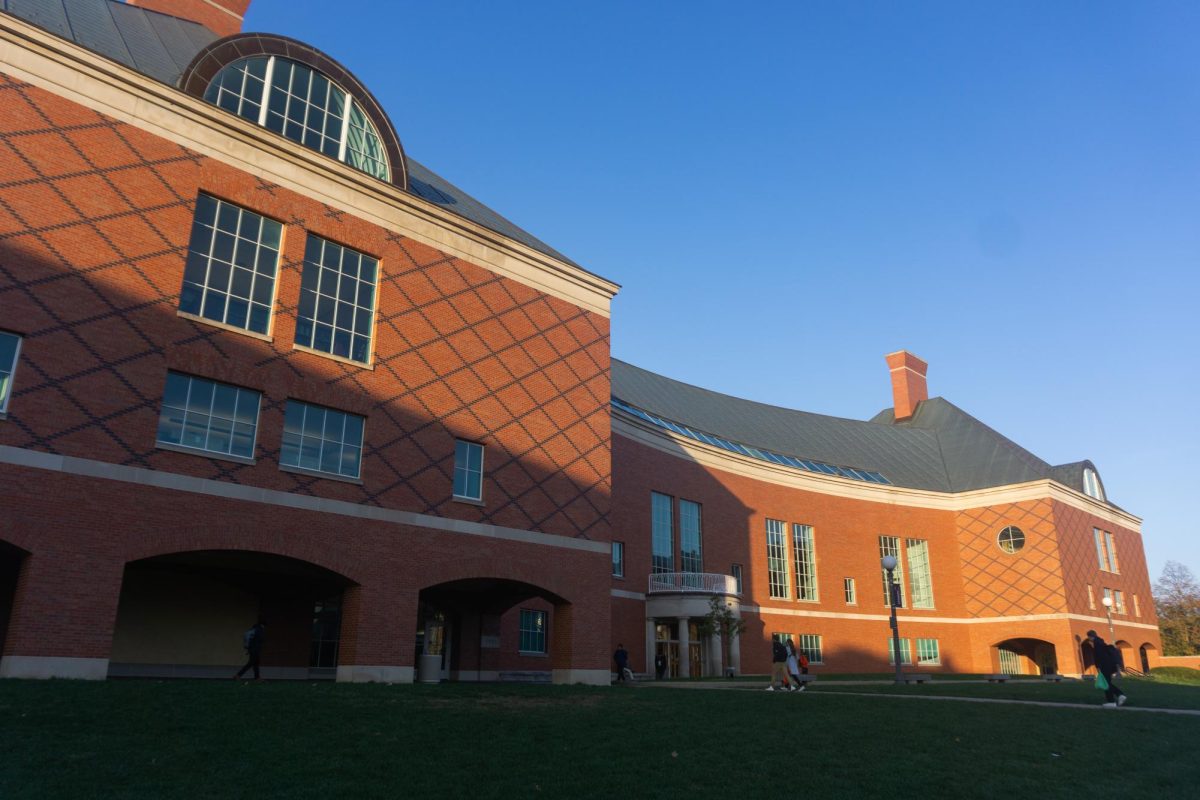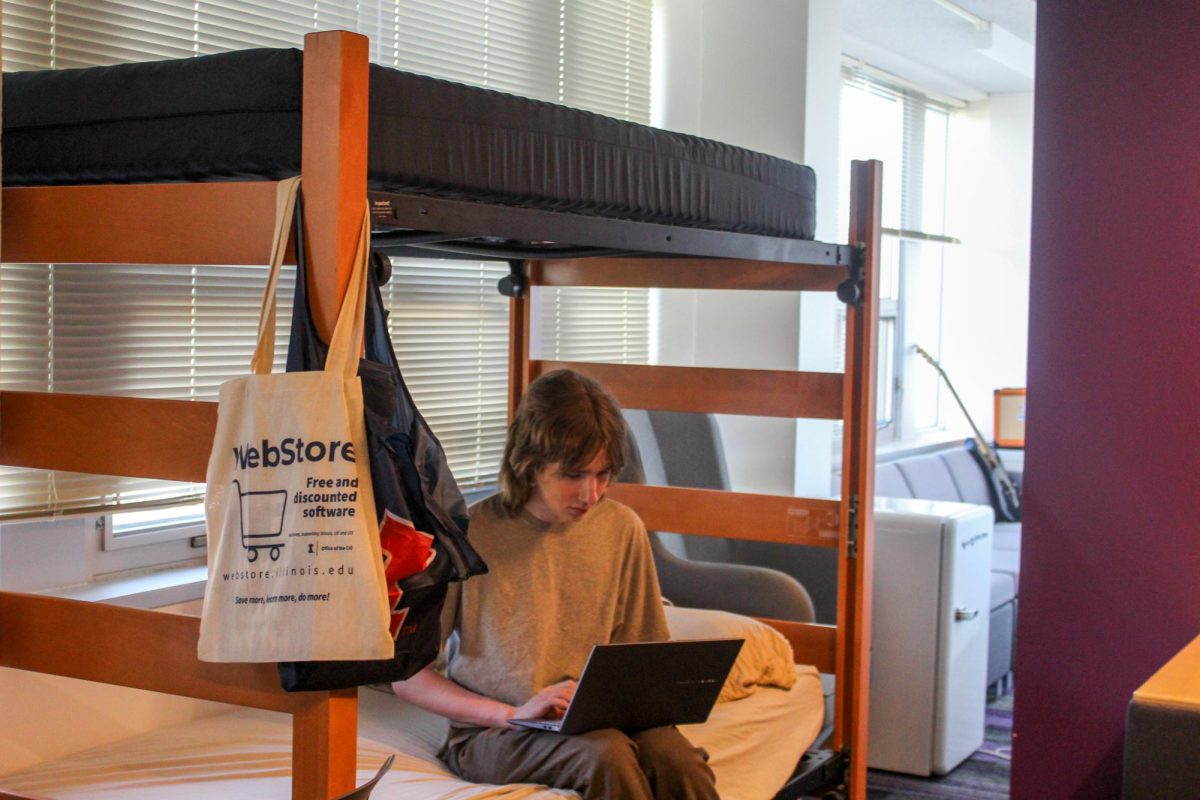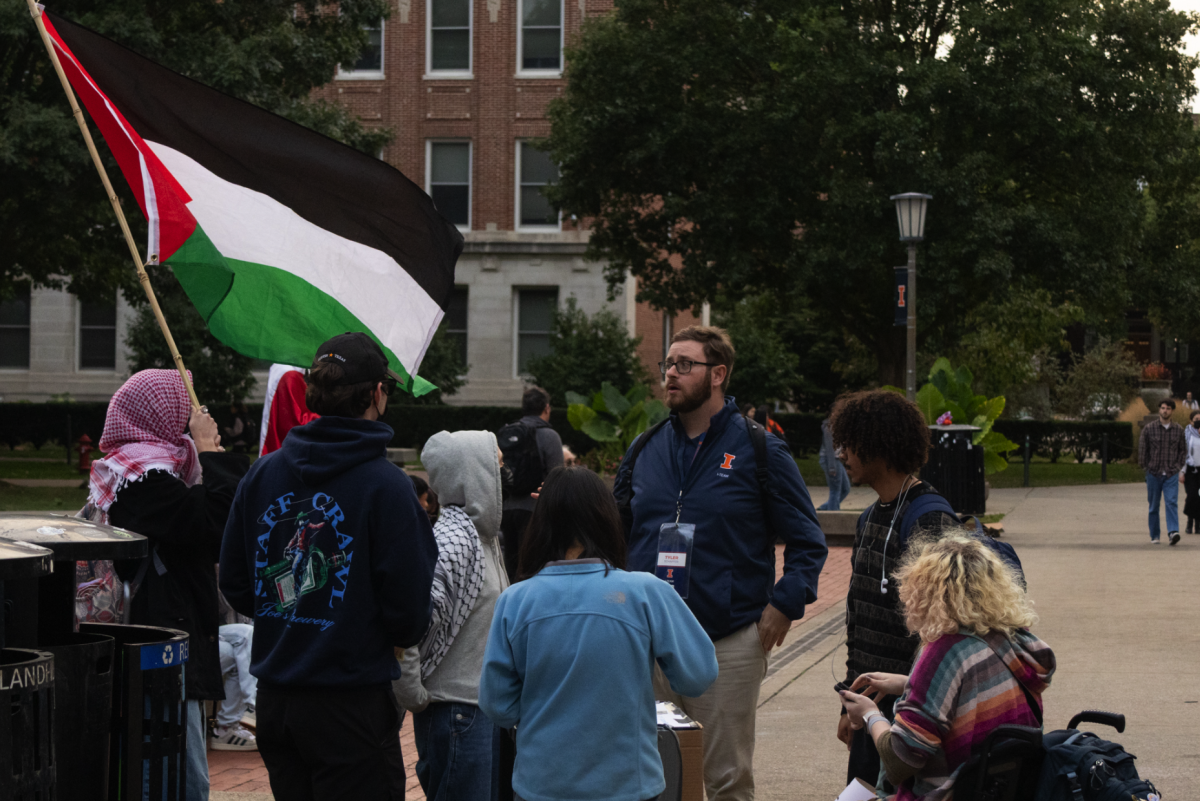Last updated on April 2, 2025 at 07:22 p.m.
On campus: Nominations for next chancellor open
The nomination portal for the University’s next chancellor opened on Wednesday, according to Jennifer Bernhard, chair of the Committee to advise the President on the appointment of a new Chancellor of the University of Illinois Urbana-Champaign and Vice President of the University of Illinois System.
The announcement, sent through a Massmail, called for submissions of “extraordinary leaders.” The prospective chancellor will take over the position of Robert J. Jones, who announced he would be stepping down in June.
The nomination portal does not include a date for when they will close submissions or announce the next chancellor; however, a timeline on the UI System website indicates the selection process will be complete at the end of June.
Get The Daily Illini in your inbox!
On campus: Students rally at Illini Union for Israeli Apartheid Week
Students, faculty and community members opened Israeli Apartheid Week with a rally on the Main Quad Monday afternoon. Demonstrators from various RSOs and community organizations marched and gave speeches to the crowd.
Israeli Apartheid Week calls for the support of Palestinian self-determination and raises awareness of what they view as Israel perpetrating a system of apartheid on Palestinians — an allegation that’s been raised by non-governmental organizations like Human Rights Watch and B’Tselem.
Several people present on Monday, including Terri Barnes, professor in LAS, also cited the arrest of Mahmoud Khalil, a Palestinian activist and graduate student at Columbia University, as part of their reason for rallying. Khalil, a green card holder, was arrested March 1 and is facing deportation for what the Department of Homeland Security views as his role in organizing “activities aligned to Hamas.”
In the US: National security officials include journalist in group chat
National security officials accidentally included Jeffrey Goldberg, The Atlantic’s editor-in-chief, in a Signal group chat in which they discussed upcoming military strikes in Yemen, The Atlantic reported on Monday.
Members of the encrypted group chat included National Security Advisor Mike Waltz, Secretary of Defense Pete Hegseth and Vice President JD Vance. Waltz invited Goldberg into the group chat, where he saw discussions over strikes on Houthis members in Yemen.
The leak raised questions about why Goldberg was added to the chat and how the Trump administration was handling sensitive information.
On Saturday, Trump stated that he would not be firing anyone over the leak, which he has called “fake news” and a “witch hunt.”
Worldwide: Major earthquake strikes Myanmar
A 7.7 magnitude earthquake struck Myanmar on Friday, resulting in the deaths of over 1,600 people and injuring another 3,400. The quake, which struck near Mandalay around 12:50 p.m., was also felt in other countries in the region.
The number of casualties is likely to grow, according to the Associated Press.
Damage to airports in the region, along with dangers resulting from the ongoing civil war, has complicated rescue and relief efforts in the country.
Myanmar’s ruling military dictatorship has restricted aid throughout the country and has not stopped airstrikes since the earthquake. Still, Saturday night, the National Unity Government — the country’s popular opposition party — announced there would be a unilateral partial ceasefire to allow aid efforts.
Worldwide: Thousands gather in support of Turkey’s İmamoğlu
Several hundred thousand people gathered in Istanbul, Turkey, on Saturday for what is the latest in a series of protests calling on President Recep Tayyip Erdoğan to release the city’s mayor, Ekrem İmamoğlu.
İmamoğlu was detained by Turkish police on March 19, and later formally arrested for corruption and terrorism — charges that he denies and many view as politically motivated.
The arrest came days before İmamoğlu’s party — the Republican People’s Party— held a primary for Turkey’s next presidential race. İmamoğlu has been seen as a potential rival to Erdoğan, who has been Turkey’s president since 2014.
Considering other recent pushes toward authoritarianism, many of Erdoğan’s critics are calling the arrest an undemocratic move made to temper İmamoğlu’s growing popularity throughout the country.
Since protests began on March 19, Turkish police have detained nearly 2000 people, according to Interior Minister Ali Yerlikaya — including several journalists.







